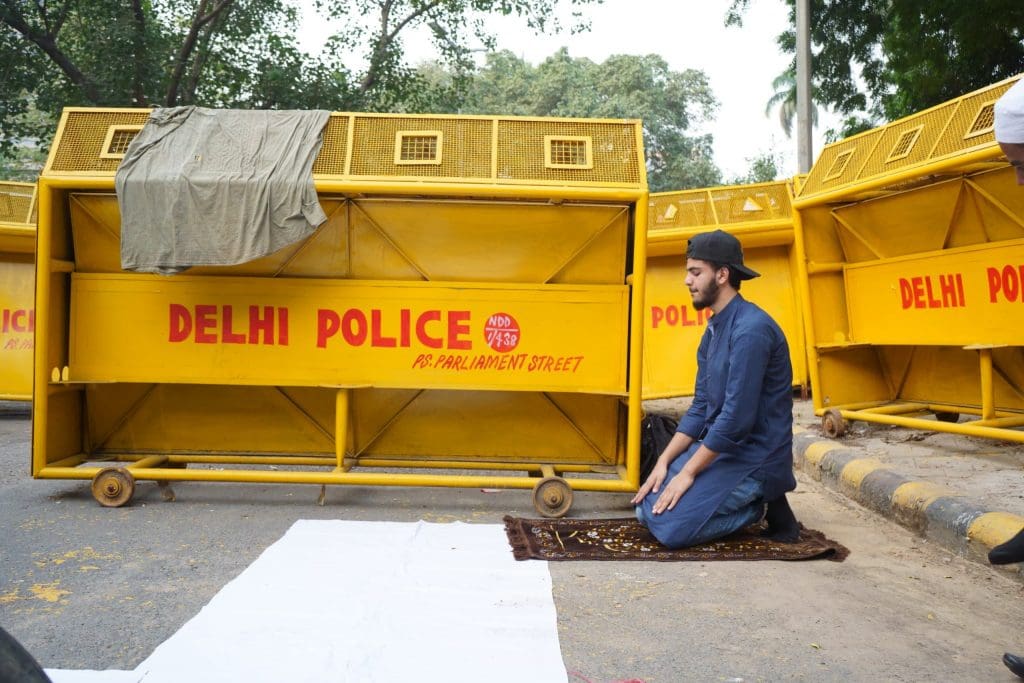
Amidst the growing incidents of islamophobia and anti-Muslim violence across the globe, the Combatting International Islamophobia Act passed in the US House of Representatives is a crucial step towards monitoring acts of Islamophobia. Representative Ilhan Omar along with 30 other lawmakers introduced this bill in October 2021.
Following the passage of the legislation to create a special envoy to combat Islamophobia, Ilhan Omar wrote on Twitter: “The passage of this legislation in the House of representatives is a huge milestone for Muslims around the world and a powerful signal that Islamophobia cannot be tolerated anywhere.”
The Act allows the Department of State to officially document Islamophobic acts around the world and issues related to them. The Act further seeks to establish a Special Envoy that will head the monitoring of acts of Islamophobia. The Act will also seek to include in the existing Congress reports about Human rights, the acts of Islamophobia in the form of physical harassment, media, governmental and non-governmental attempts to justify and/or propagate Islamophobia and hate crimes against Muslims.
The press release by Representative Ilhan Omar’s office pointed out several countries where Islamophobia and anti-Muslim hate crime is at an all-time high, including India. It read: “There has been a staggering rise in incidents of violent Islamophobia incidents worldwide. Whether it is the atrocities being committed against the Uyghurs in China and the Rohingya in Burma, the crackdowns on Muslim populations in India and Sri Lanka, the scapegoating of Muslim refugees and other Muslims in Hungary and Poland, the acts of white supremacist violence targeting Muslims in New Zealand and Canada, or the targeting of minority Muslim communities in Muslim-majority countries like Pakistan, Bahrain, and Iran—the problem of Islamophobia is global in scope.”
The Ministry of External Affairs in India was quick to respond to the press release and called India a vibrant, secular democracy. It is crucial to note that with the Hindu nationalist BJP holding the office of power in India, anti-Muslim violence and Islamophobia are at an all-time high. Anti-Muslim violence, including the acts of mob lynching, media propaganda, and the passing of draconian acts such as CAA, NRC, and NPR have doubled the sufferings of Muslims over the years. In such a condition, it is vital for India to have its own law against Islamophobia that is carried out, not only by individuals but also by the state machinery.
Speaking to Maktoob, Political Anthropologist Sharib Ali said that India needs an anti- islamophobia law that pays attention to the context of hate against Muslims in India.
“Unlike the US and Europe where phobia of Muslims has emerged from fear of outsiders and aliens, the Hindutva project in India seeks to politically construct Muslims as outsiders. This is why the word hate is so common in India as opposed to the ‘phobia’ of the global north. We need a law that documents hate against Muslims- expressed in physical, verbal, or symbolic forms against Muslim citizens, in public, media, or digital forms. The SC/ST atrocities act is a great example. The law needs to have provisions for institutional action against perpetrators as well as documentation attacks starting from districts to the national level,” Sharib said.
It is further important to note that, while the Act passed in the US is a crucial step, it further needs to criminalize Islamophobic acts. In India where Anti-Muslim violence has increased two folds since 2014, an Act against Muslim hatred and Islamophobia, on the lines of the SC-ST Atrocities Act, that documents and criminalizes any form of anti-Muslim hatred is vital, added Sharib.
Sharing his opinion on the Combatting International Islamophobia Act, Supreme Court lawyer M R Shamshad talked about the indiscriminate application of existing laws.
He says: “Changing the legal mechanism with the change in time may be necessary. However, more important is to maintain rule of law based upon the existing legal provisions. Even now, if laws are applied dispassionately, most of the issues can be addressed. The application of laws in our system is discriminatory. A small issue may become like a matter of national emergency on the other hand on many serious matters cognizance is not taken by the system. Hence what would you do with a new law if it is not applied in a fair manner?”
Talking about the need for a similar law against Islamophobia in India, he mentioned that the Code of Criminal Procedure and the Supreme Court, both say that on the information of cognizable offense, registration of FIR is ‘mandatory’.
“Is this being followed? Considering the fact that discretion of the officers concerned is used on discriminatory basis; this discretion has to be the least coupled with the accountability of the officials concerned,” Shamshad said.
A 25-year-old Muslim woman from Araria, Bihar shared, requesting anonymity, the horrific incident of attack on her father by Bajrang Dal Activist and how his calls to the police went unanswered because of his Muslim identity.
“This should be underlined. The motive behind the crime, anti-Muslim bias, should be documented,” she said to Maktoob.



